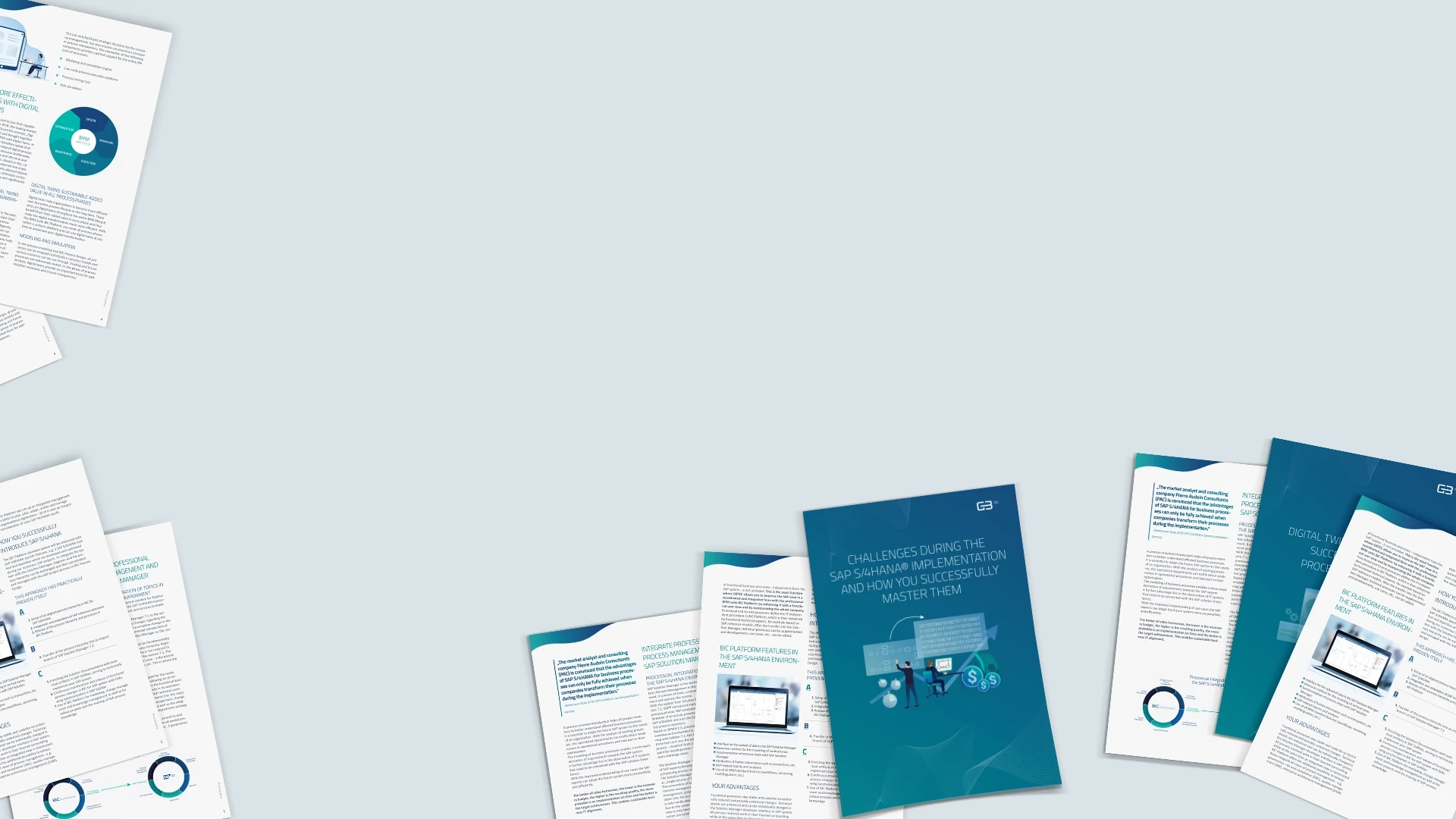BIC Process Design
Understand & Transform
Supercharge your business operations with the most intuitive AI-powered BPM software.
It seems that you come from a German speaking country. Here you can change the language
EnglishTechnical change has reached the energy industry. That is why energy providers are constantly facing new challenges and have to rethink their tried-and-tested processes in order to beat the competition in the long term. But what do new technologies mean for the development of this industry? Which areas are particularly affected? And how can energy companies face these uncertainties and master them successfully?
In our whitepaper, you will learn where the biggest challenges of the energy industry lie, how they can be overcome and why business process management plays a crucial part for it.

Excerpt
Request now to get access to the full version of the whitepaper.